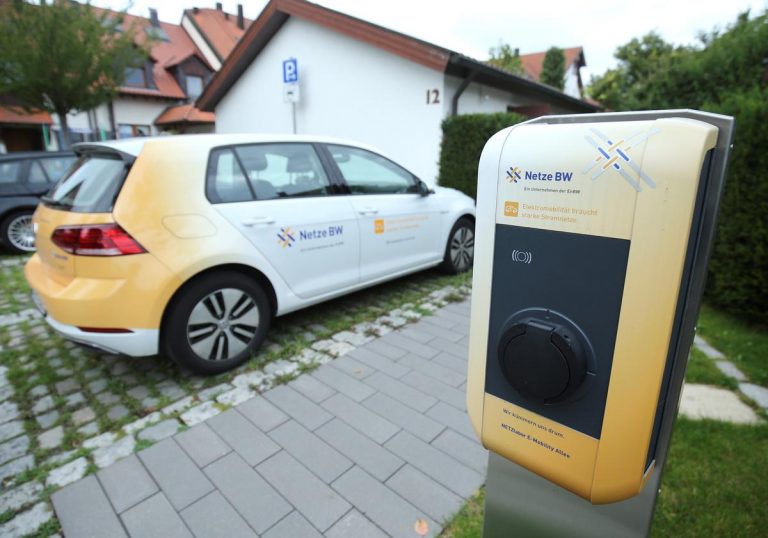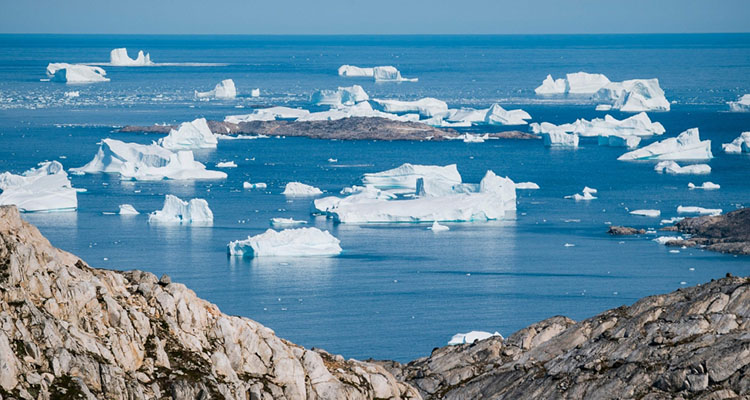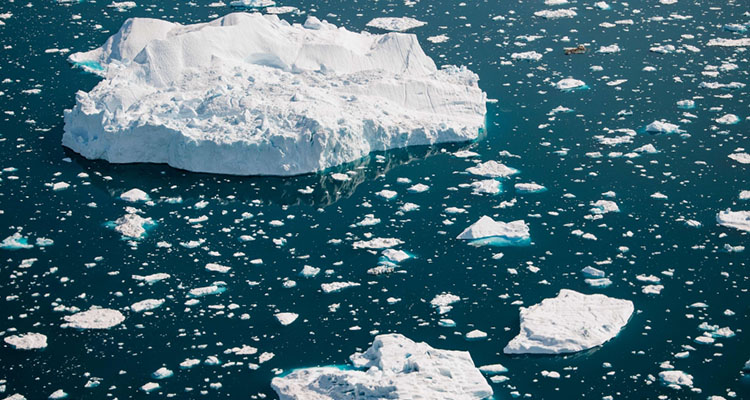California weighs plan to save tropical forests

By Julia Rosen /Los Angeles Times
The smoke is still rising from the Amazon as fires smoulder in the world’s largest rain forest. The blazes triggered a wave of global outrage over the loss of precious trees. But California says it has a plan to keep tropical forests standing.
This week, state officials will consider a proposal to protect these forests by steering billions of dollars to countries such as Brazil. The money would fund government efforts to fight deforestation and promote sustainable industries that don’t involve chopping down and burning trees. And it would come from companies that offset their own emissions by purchasing carbon credits through markets such as California’s cap-and-trade programme.
Preserving tropical rain forests is essential to combating climate change – around the world, roughly a third of the greenhouse gases released each year come from clearing forests. And backers say this plan is the best way to funnel much-needed cash toward that crucial task.
Others agree on the pressing need to halt deforestation, but they say California’s plan is a dangerously misguided way to do it. In their view, it would simply allow polluters to keep on polluting without doing anything about the true drivers of forest loss: rising demand for products such as beef, soy and palm oil.
The issue has divided scientists, environmental groups and indigenous leaders who say the Tropical Forest Standard, or TFS, has ramifications far beyond the Golden State. California is a leader on climate change, and approving the TFS could inspire other states, countries and companies to adopt a similar approach.
“This is a critical moment,” said ecologist Christina McCain, who heads the Environmental Defense Fund’s climate initiatives in Latin America. “The world is watching.”
The TFS wouldn’t be the first attempt to fund forest protection through carbon offsets. Several international programmes have employed them as a way to preserve and restore forests while lowering the cost of reducing emissions in wealthy countries and funding sustainable development in poorer ones.
Some of these projects succeeded, but others never came to fruition, leaving the fate of the carbon they promised to store in limbo. Many also spelled disaster for people who live in the forest.
Indigenous groups fell prey to unscrupulous “carbon cowboys” who used questionable methods to secure the rights to native land – and its potentially lucrative carbon. People were kicked out of their territories by governments eager to launch conservation projects without local interference.
In any event, the programmes never attracted enough money to reach their intended scale, said Louis Verchot of the Center for International Forestry Research, who has studied previous initiatives.
“It wasn’t what you would call a real enabling environment,” he said. “That’s where things are stuck right now.”
Can the Tropical Forest Standard do better? Its backers certainly think so. They’ve spent the last decade trying to learn from past mistakes.
The TFS lays out criteria for certifying state, provincial or national governments that want to sell forest offsets, leaving no room for carbon cowboys. Participating governments must commit to reducing deforestation, and they’ll only receive credit for the forest they spare beyond their baseline goal.
Plans must be posted publicly, and progress must be closely monitored and independently verified.
“There will be a ton of eyes on it,” said Jason Gray, the head of California’s cap-and-trade programme.
Governments also have to prove that local stakeholders – especially indigenous groups – have a say in the programme and stand to benefit from it. The Brazilian state of Acre, which has spent years developing partnerships with tribes, is often cited as a model.
“Indigenous peoples are very well-informed and prepared not to let their rights be violated,” said Francisca Oliviera de Lima, a member of Shawadawa People who works at Acre’s state-run Climate Change Institute. “We are in favour of this California programme.”
The TFS tries to address other problems, such as leakage, which occurs when suppressing deforestation in one place simply pushes it elsewhere. That would be difficult to get away with in a state that’s part of the programme, said Steve Schwartzman, senior director of tropical forest policy at EDF, a leading supporter of the TFS.
In addition, the TFS mandates that participating states and provinces pony up extra credits as insurance, in case fires or other natural disasters accidentally release carbon that was stored for offsets.
With these safeguards in place, proponents argue the TFS could finally allow real money to flow toward fighting deforestation. Today, less than 1.5% of funding to fight climate change goes to forest protection, according to a new analysis by a coalition of scientific organisations and environmental groups.
That has bred frustration in countries such as Brazil, where the government had reduced deforestation by upping enforcement of protected areas but where low levels of investment have failed to create new economic opportunities for farmers, loggers and miners who obeyed the rules, said Dan Nepstad, executive director of the Earth Innovation Institute.
With the TFS, offset money could fund things such as community centres, fish ponds for aquaculture and government programme to support sustainable farming practices.
For California, the reward is the chance to drive greenhouse gas reductions far beyond what the state could accomplish at home, Nepstad said: “The TFS lays out the framework for magnifying that tenfold.”
Critics of the TFS object to almost everything about it, starting with the very idea of offsets.
He and other opponents say California’s cap-and-trade programme already relies too heavily on offsets – polluters can use them to cancel up to 8% of their emissions in the state – and argue that the TFS would take things even further in the wrong direction.
Chief among their concerns is the legitimacy of tropical forest credits.
Barbara Haya, who studies offset programmes at the University of California, Berkeley, worries that leakage will still be a problem, since activities shut out of a participating state can still shift to other states or countries.
It’s also hard to ensure that the programme will dole out credit only for carbon savings that wouldn’t have happened anyway. Haya examined two decades’ worth of data and found that a quarter of potential partners would have been able to generate offsets under the TFS’s rules due to declining deforestation rates, even though their progress clearly wasn’t due to the programme (it didn’t yet exist).
Then there’s the fear that, despite the TFS’s insurance provision, the carbon that was supposed to offset a polluter’s emissions will end up in the atmosphere eventually, either in a bad fire season or after a change in political leadership reverses a country’s deforestation policies.
Others contend that the TFS is based on flawed economic reasoning. So far, the price of carbon offsets on exchange markets is just too low to compete against the forces of global commerce, which make land more valuable than trees, said Tracey Osborne, a geographer at the University of Arizona.
And while advocates for indigenous communities applaud the TFS’s social safeguards, some of them say it will be nearly impossible to ensure they are being honoured from afar.
Governments in many tropical countries have a long history of corruption, said Alberto Saldamando, an advisor to the Indigenous Environmental Network. He worries the TFS will only heighten the incentive to coerce or threaten indigenous groups to participate in programmes that don’t always serve their interests.
“Carbon, instead of being a poison, is a value, and that perspective leads to all kinds of abuses,” he said.
Opponents raised all these issues last fall, when California’s Air Resources Board first met to consider the standard. It opted to delay a vote and asked legislators to gather input from both sides. If the board endorses the standard when it meets on Thursday, it won’t mean that credits generated under the TFS will be used in the state’s market right away; governments that want to participate would first have to qualify, and then CARB would have to decide whether to accept tropical offsets, Gray said. The motivation to propose the standard now is “to set a very high bar” for forest offset programmes in general, he said.
Regardless of whether California ever uses the TFS in its own cap-and-trade programme, CARB’s approval would be a powerful endorsement of forest offsets and a setback for efforts to zero out greenhouse gas emissions, opponents said.
Critics would rather see the state focus on other strategies for preserving forests, such as empowering indigenous groups to protect their lands and pressuring companies to rid their supply chains of goods associated with deforestation. (California lawmakers are considering a bill that would require government contractors to do so.)
Haya and more than 100 other researchers laid out their objections to the TFS and submitted them to CARB. Last month, senator Bob Wieckowski, D-Fremont, released his own letter imploring the board to reject it.
But supporters are speaking up, too.
In June, four Assembly members encouraged CARB to approve the standard as long as it commits to “vigorous and proactive monitoring” of any government that uses it. More than 100 scientists also penned an open letter endorsing the TFS. – Tribune News Service












AVIGNON – This January, 3,554 US economists – including 27 Nobel laureates, four former Chairs of the Federal Reserve, and two former Treasury Secretaries – proposed a previously heretical policy. The United States, they said, should combine a domestic carbon price with a “border carbon adjustment system.” By backing tariffs that would reflect the carbon intensity of key imports, they broke with the free-market orthodoxy that national environmental policies should not impede global trade liberalization.
They were right to do so. Absent carbon tariffs, concerns about industrial “competitiveness” will continue to constrain vital action to counter harmful climate change.
The fundamental obstacle to decarbonization is the apparent paradox that the costs are trivial at the final consumer level, but large for an individual company. As the Energy Transitions Commission’s recent Mission Possible report emphasizes, the technology to achieve total decarbonization of the global economy by around 2050-60, with very small effects on households’ living standards, already exists. If all steel used in car manufacturing were produced in a zero-carbon fashion, the price of a typical car would increase less than 1%. The total cost to decarbonize all the harder-to-abate sectors – heavy industries such as steel, cement and chemicals, and long-distance transport (trucking, aviation, and shipping) – would not exceed 0.5% of global GDP. Viewed from this perspective, there is no excuse for national policymakers failing to adopt policies that can drive progress to a zero-carbon economy.
But, viewed from the perspective of an individual company, the costs of decarbonization can be daunting. Producing zero-carbon steel could add 20% to total production costs, and producing zero-carbon cement might double cement prices. So any individual steel or cement company that committed to zero-carbon emissions, or was forced to do so by regulation or carbon pricing, could be driven out of business if its competitors did not face equivalent constraints.
This conundrum has so far stymied the effective use of explicit carbon prices to drive decarbonization. Almost all economists who accept climate science believe that carbon taxes, or prices set in an emission-trading scheme, must be part of any optimal policy response. But even in places where this theoretically desirable policy has been deployed – for example, within the European Emissions Trading System – carbon prices have played a less important role than either regulation or direct subsidization of renewable energy in driving decarbonization. The reason for this is either that carbon prices have been too low to make a major difference, or that the most energy-intensive heavy industries have been exempted. And those weak policies reflect the fear that higher carbon prices and more complete coverage will make domestic industry uncompetitive with imports from countries without such policies.
The obvious response is to impose carbon taxes in one country, or in a customs union of multiple countries, with an equivalent tariff per ton of carbon on carbon-intensive imports, combined with rebates of the tax for exporters. Ten years ago, when I was Chair of the UK Committee on Climate Change, we debated this possibility. But it was met by a wall of opposition. Such policies, it was said, violated WTO rules, were undesirable in principle, and would unleash tit-for-tat tariff increases justified by whatever environmental priority each country wished to pursue.
Since then, we have successfully used other policy levers to drive large-scale deployment of renewable electricity systems, with costs falling dramatically as a result. But in the industrial sectors, the multiplicity of alternative possible routes to decarbonization, and the fact that different routes will likely be optimal in different circumstances, makes it essential to use the price mechanism to unleash a market-driven search for least-cost solutions. And to do that, we need an answer to the competitiveness problem.
That’s why the ETC’s Mission Possible report argues for the inclusion of border carbon adjustments (carbon tariffs) in policymakers’ tool kit, and why so many leading US economists have reached the same conclusion. They now argue for a carbon price within the US, combined with border adjustments for the carbon content of both imports and exports. Such a scheme “would protect American competitiveness and punish free riding by other nations.”
But while the economists couch their argument in language designed to play well in the US, the policy could equally be applied by other countries to defend their industries against carbon-intensive imports from America, should the US choose to be a free rider in efforts to tackle global climate change.
Indeed, no country committed to addressing climate change should regard this policy proposal as a threat to its economy. If one country applies a tax of, say, $50 per ton of carbon dioxide emitted, with an equivalent border tax on imports and with a rebate for exporters, any other country doing the same will leave its industries in exactly the same relative competitive position as before either country introduced the policy. But companies in both countries would now face an effective carbon price.
Global political agreement on carbon pricing has proven to be elusive. A carbon tariff could unleash a sequence of independent national decisions that drive a beneficial “race to the top” in which roughly equal carbon prices spread around the world.
Sometimes, intellectual taboos should be dropped. Border carbon adjustment is an idea whose time has come. It could play a major role in driving progress toward the zero-carbon economy that is technologically and economically possible by mid-century.